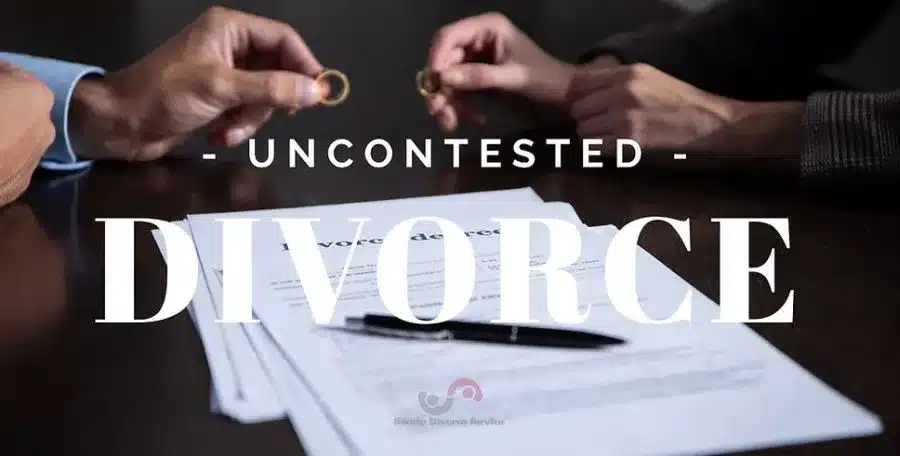If you are in a difficult financial situation, it’s possible to get a divorce without paying a dime.
Divorce can be expensive. Even if you plan on representing yourself, the court divorce fees alone can cost several hundred dollars. You may be wondering how to get a divorce with no money. Fortunately, it is possible to get a divorce without any court fees if you are in a difficult financial situation.
Divorce Fee Waiver for Indigents • Obtaining Divorce Forms • Providing Financial Proof • File for Fee Waiver • Next Steps • Legal Aid Divorce Help

Divorce Fee Waiver for Indigents
If you are wondering how to file for divorce with no money, you will be relieved to know your state has an indigent divorce or fee waiver procedure. This procedure will allow you to file for divorce and ask the court to waive all of the court fees associated with the process. It is specifically designed to help people with limited finances end their marriages.
Related: The Ins and Outs of Community Property Law
Obtaining Divorce Forms
The first step in getting the fees waived when you are getting divorced is to get the forms. First, check online to find your local divorce or family court. Their website will likely have forms you can download or print. You will need to get the forms to file for divorce as well as the forms to ask for a fee waiver. Additionally, check to see if there is an instruction booklet to guide you through the process.
You can also go to the courthouse and get the forms from the clerk there. If you have questions, they may be able to help you complete the forms. Make sure you meet your state residency requirements. You cannot file in your state unless you meet them. Fill in all the information requested, including details about children of the marriage, assets, debts, date of marriage, and the reason for the divorce. You will also need to indicate if you are asking for child support, alimony or division of marital assets.
Providing Financial Proof
In order to have the fees in your divorce waived, you will need to prove to the court that you are indigent, or poor.
You will need to include proof of your income (which includes income from all sources, such as Social Security, child support, disability and payroll), assets (things like bank accounts or cars), and your debts (credit card, loans and utility bills). Tax returns may also be requested.
The forms will tell you exactly what documents the court needs. The good news is, you will need to gather this information anyhow, since everyone filing for divorce must provide financial disclosure to the court, so this is not really an extra step.
File for Fee Waiver
Once you have completed all the paperwork, you need to file the papers. The documents will need to be notarized. You can get forms notarized at your bank if you have one. Alternatively, you can ask the clerk to notarize the forms for you when you file them.
Next Steps
After you file, your paperwork will be reviewed by a court employee or by the judge. A hearing may be necessary so the judge can ask you some questions. Your fee waiver may be approved, or the court might decide to defer your fee. This means you can pay it later. This is common if your ex has assets and will be paying out some to you as part of the divorce judgment or settlement.
Once the waiver is approved, your case will move forward. The simplest way to proceed is to file a settlement or appear in court and tell the judge together what your settlement is. Another option is to move ahead with the divorce as an uncontested procedure, where your ex does not even need to appear. The procedure will be relatively quick, and you will get your divorce without paying any fees.
Get help with divorce: Texas Uncontested Divorce
Legal Aid Divorce Help
If you are not able to handle a do-it-yourself divorce where you file all the papers yourself, it is likely that there is a legal aid society in your area or a volunteer lawyers’ program through your local bar association. Call your city or state bar association to ask for contact information or do an internet search to find them. These organizations provide no-cost (and also low-cost) legal assistance. If you are indigent, they may represent you at no cost and will file all fee waiver papers on your behalf.
Fortunately, you don’t have to have any money to get a divorce. However, you do have to follow the procedure set up by your state to have the court fees waived. This can be a huge relief when you need to get out of a marriage but don’t have any funds.
Read More: The Most Common Reasons for Divorce in Texas
Looking for more advice about divorce? Here are a few of our favorite resources:






